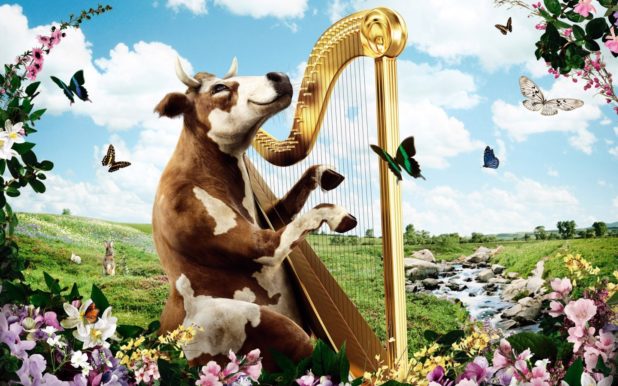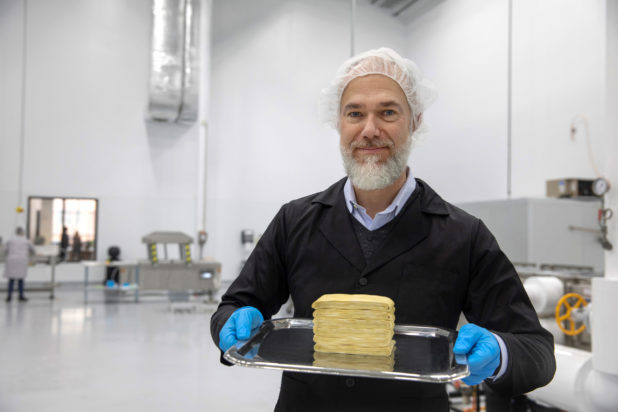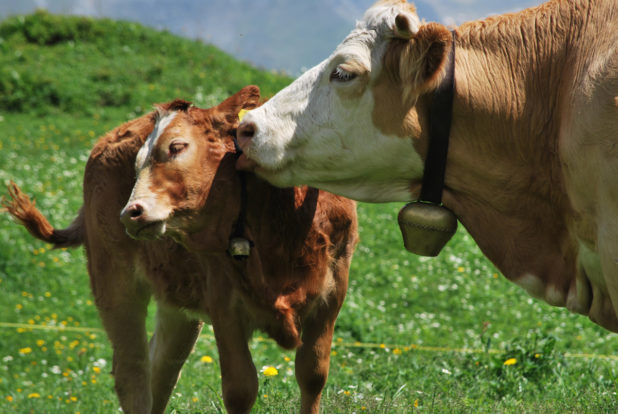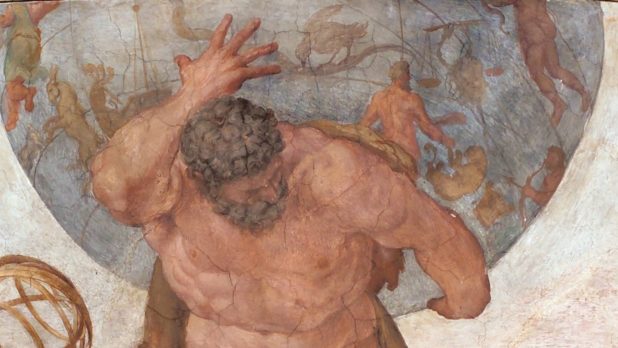Cows are edible gadgets specifically designed to turn grass into human food.
When you eat them, you make their spirits happy, for they know they’ve fulfilled the purpose of their existence.
CNBC:
As consumers become increasingly comfortable eating faux-meat burgers that look, cook and taste like the real thing, a food-tech start-up backed by Jeff Bezos and Bill Gates is using fungus as the primary ingredient to create alt-meat foods.
Nature’s Fynd, based in Chicago, has raised $158 million in funding from investors including Bezos, Gates, and Al Gore. The company’s meatless breakfast patties and hamburgers, dairy-free cream cheese and yogurt, and chicken-less nuggets are scheduled to hit grocers’ shelves later this year.
Nature’s Fynd was co-founded in 2012 — initially as Sustainable Bioproducts — by Thomas Jonas and Mark Kozubal, now chief executive and chief science officers, respectively. A few years earlier, Kozubal had unearthed a microbe, Fusarium strain flavolapis, from volcanic hot springs in Yellowstone National Park. He led an R&D team that formulated the microbe into what the company calls Fy, the fermented, versatile, protein-rich source for Nature’s Fynd’s products.
Fermentation has been used in making bread, beer, wine, cheese and other products for millennia, and is now emerging as a key alt-protein platform with major potential to align science with entrepreneurship, policy and investment, according to the Good Food Institute. Even so, Nature’s Fynd has some catching up to do. U.K.-based Quorn, founded in 1985, has been offering its fungus-based meatless products in the U.S. since 2002. It was acquired by Philippine food maker Monde Nissin for about $830 million in 2015, according to Reuters. And the field of other potential competitors is growing.
Much as cows, chickens and pigs were domesticated centuries ago as protein sources, “now is the time for this second domestication,” Jonas said in a recent interview. “The farming of this microbe is an efficient way of producing protein that is just as good.”
Thomas Jonas
Beyond fungus, Nature’s Fynd also is representative of the food sustainability movement, whose mission is to reduce the carbon footprint of global food systems, which generate 34% of greenhouse emissions linked to climate change.
“The challenge for this and future generations is to learn to do more with less,” Jonas said. “Because with eight billion people, the Earth is not getting any bigger, its resources are dwindling and climate change is making it even more difficult to find land to grow crops to feed animals. The math just doesn’t work. So, the whole goal of our new protein system is to increase the efficiency of the complete protein chain.”
…
Chris Rivest, a senior climate-tech investor at Breakthrough Energy Ventures, established in 2016 by Gates and a coalition of private investors concerned about the impacts of climate change, said food is a commodity, with purchases based on taste, nutrition and cost.
He is a fan of the fungus, saying he was “blown away” by products he taste-tested (Gates was similarly impressed during a “60 Minutes” segment) and its nutritional value.
The company says the vegan protein includes all 20 amino acids, including the 9 essential amino acids, and good levels of fiber, vitamins and minerals, with no cholesterol or trans fats. It says Fy has one-tenth the fat of ground beef and 50% more protein than tofu; twice as much protein as raw peas.
Rivest also thinks the business can compete on cost. “We think the Nature’s Fynd model can undercut costs of traditional protein sources,” he said. “That’s what really sold us on this opportunity.”
If these people are concerned about the relationship between carbon emissions and farting cows, they should just plant more trees.
Trying to recreate from microbes what a cow already produces is an insult to cows.
Feeding humanity is their noble task.
We should celebrate cows and their eternal struggle to feed us.
The entire weight of the world lies on their juicy, steaky backs.
 Daily Stormer The Most Censored Publication in History
Daily Stormer The Most Censored Publication in History







